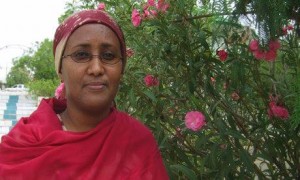Somaliland clan loyalty hampers women’s political prospects
Women face few restrictions in Somaliland, the self-declared independent republic in the north-western corner of conflict-ridden Somalia. They can work, own property, and be vocal on social issues. But politics remains a man’s world in the former British protectorate, an oasis of stability in the region.
There is only one woman among the 164 MPs and just three in the cabinet of 40. There is not a single female judge in Somaliland, although in 2012 four deputy attorney generals were appointed for the first time.
Abdi, a founding member of the National Women’s Network, Nagaad, and country representative of the charity Progressio, attributes the lack of women in politics to the male-dominated clan system. “Most political parties get support from clans, which decide who should become candidates and the clans don’t put women forward. The clans want men because they know where the men’s loyalties lie. When women marry, their loyalty changes to her husband’s clan,” says Abdi.
The clan a woman is born into tends to be reluctant to support her if she marries into another clan, yet her husband’s clan may suspect she remains loyal to her own clan. Somaliland, home to 3.4 million people, consists of three main clans with eight sub-clans.
Abdi belongs to the Isaaq, Somaliland’s largest clan. To shake up the republic’s political order, Nagaad and other civil society groups are pushing for changes in the law that would set a 20% quota for women in parliament, in the runup to elections at the end of the year.
An attempt in 2007 was blocked by the House of Elders, the conservative upper chamber, and a bill in 2012 ran out of time. The president, Ahmed Mohamed Mohamoud Silanyo, is on record as favouring quotas, but Abdi doubts he is 100% committed, while parliament, she says, thinks it is the responsibility of the government to take the initiative. Both favour a 10% quota. “The ball is between parliament and the president,” says Abdi, who thinks 10% is too low.
Some question whether quotas are the solution to women’s under-representation in politics, but Helen Clark, who was prime minister of New Zealand for three terms and now heads the UN Development Programme, has no such doubts. “I think if nothing else is working, you should have quotas,” she said at the Women of the Year lecture in London last week.
